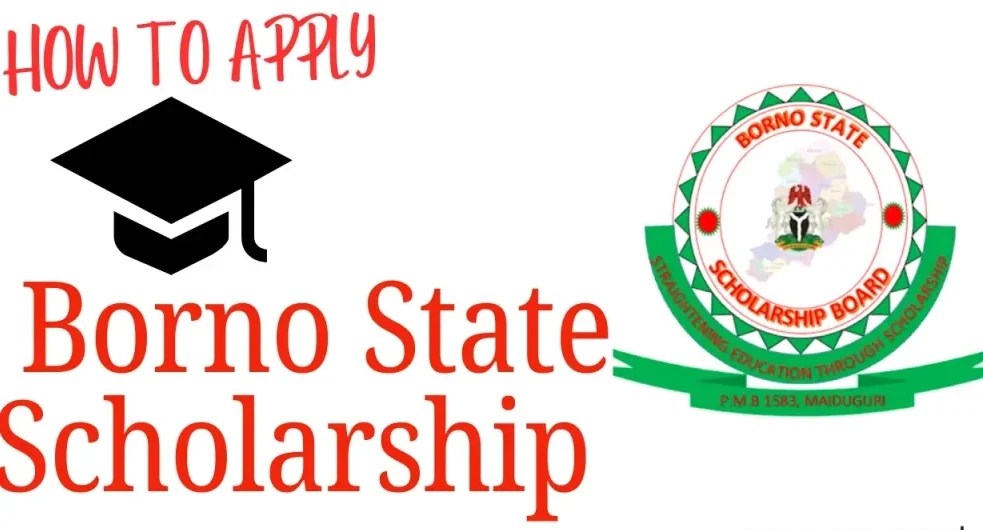Thousands of Nigerian students each year hope to obtain funding that will enable them to attend school. The expenses for tuition fees combined with textbooks alongside living expenses exceed what most people can afford. Is there any method to reduce the heavy financial expenses? The Federal Scholarship Board (FSB) serves to assist Nigerian students who need educational funding.
Through the Federal Scholarship Board, Nigerian students gain access to home and international study opportunities while removing financial obstacles. The Federal Scholarship Board provides different scholarships that enable students at every level, including secondary schools and postgraduate scholars, to succeed in their academic endeavors.
However, not everyone is eligible. This support receives only qualified applicants because candidate selection remains intense. A serious applicant needs full knowledge of the admission requirements and selection methods along with comprehension of strong application elements.
Here we will provide complete information about the Federal Scholarship Board starting from its eligibility qualifications along with strategies to boost your selection possibilities. You will acquire all necessary knowledge to present an application that wins selection by the conclusion of this guide.
Let’s dive in.
What Is The Federal Scholarship Board?
The Federal Scholarship Board exists as a governmental scholarship entity under Nigerian authority.
As a part of the Federal Ministry of Education, the Federal Scholarship Board (FSB) functions as Nigeria’s government agency. The Board has the mandate to run scholarship programs that support Nigerian students both in local institutions and overseas establishments.
The board delivers scholarship opportunities through multiple classification types.
Through Bilateral Education Agreement (BEA) Scholarships, students can study in all countries that maintain agreements with Nigeria.
Local Scholarships – For students studying in Nigerian institutions.
Commonwealth Scholarships exist specifically for postgraduate students who want to enroll in colleges across Commonwealth nations.
Other International Scholarships—Offered by organizations in partnership with the Nigerian government.
All scholarship programs have individual application requirements yet require standard conditions from every prospective applicant.
Eligibility Criteria for the Federal Scholarship Board
The Federal Board has particular specifications that students must satisfy to become eligible for any scholarship program. Eligibility requirements for the Federal Scholarship Board are clarified in detail below.
1. Nigerian Citizenship
Any applicant seeking this Scholarship must hold Nigerian citizenship. The requirement works to provide scholarship benefits exclusively to Nigerian students.
Proof of citizenship is mandatory. Identification must be established through any of these official documents:
National Identification Number (NIN)
International passport
Voter’s card
Local government identification certificate
Each scholarship may have additional requirements for an affidavit that proves your nationality. Students who possess dual citizenship need to understand the precise eligibility criteria of scholarships when they seek awards from international programs.
2. Academic Excellence
Academically exceptional candidates represent the main focus of scholarship selection at the Federal Scholarship Board. You need to keep strong academic grades for qualification.
For undergraduates, this usually means:
Students need at least 5 passing grades in core subjects that include English and Mathematics from WAEC, NECO, or NABTEB from their first attempt.
The scholarship demands a minimum 4.0 CGPA on a scale of 5.0 or 5.0 CGPA on a scale of 7.0 among university students.
Students at polytechnic institutions and colleges of education need to demonstrate a CGPA at the minimum level of 3.5 out of 4.0.
The requirements for postgraduate scholarship applicants consist of:
Candidates need to hold a first-class or second-class upper degree from any institution recognized by the university.
The applicant must enroll in postgraduate programs at a recognized educational institution.
Academic transcripts serve as an admission requirement, while some students need to provide recommendation letters from their lecturers or academic advisors.
3. Age Requirements
The Federal Board controls participation requirements through age parameters that differ according to scholarship type.
Candidates seeking undergraduate scholarships need to be 17 to 25 years old.
Master-level scholars should be younger than 35, whereas doctoral candidates should not exceed 40 years old.
The established age requirements help scholarship programs reach students who study at proper academic levels. Exceptions apply to certain scholarship types, yet applicants need to show clear evidence of special situations.
4. Admission into a Recognized Institution
Candidates need to gain admission at an approved educational institution to receive a Federal Scholarship Board scholarship. This includes:
Federal or state universities
Polytechnics
Colleges of education
Students receiving international scholarships need to enroll at approved foreign universities.
To complete their application, candidates need to show evidence of admission through documents such as an admission letter from their educational institute. The scholarship may ask for both admission proof and official documentation from the school registrar about enrollment status.
5. Field of Study Considerations
Certain scholarships under the Federal Scholarship Board select specific academic fields as their main focus. For instance:
Bilateral Education Agreement (BEA) Scholarships mainly target students majoring in science, technology, engineering, and mathematics (STEM).
Students applying for Commonwealth or foreign scholarship programs typically gain priority acceptance for medical studies together with law and social science degrees.
Students can submit applications from any discipline, yet applicants majoring in priority fields will likely secure selection.
6. Financial Need
The Board considers financial need as one of their selection criteria for certain scholarships. Such procedures enable access to support for students coming from disadvantaged financial backgrounds.
Applicants may need to provide:
A statement of financial need
Evidence of parents’ or guardians’ income
A declaration of sponsorship (if applicable)
The main factor in selection is merit; however, financial need can function as a secondary advantage during certain applications.
7. Strong Personal Statement and References
Students who submit a high-quality personal statement create an advantage over other candidates. Applicants to the Federal Scholarship Board generally need to write essays that address several topics, including:
Their academic goals
Career aspirations
Why they deserve the scholarship.
The value of an application increases when lecturers, employers, or community leaders provide recommendation letters. Reference letters must provide evidence about academic successes while demonstrating leadership capabilities combined with evidence of character.
How to Apply for the Federal Scholarship Board Scholarships
Applicants need to properly prepare themselves before submitting their scholarship application. Here’s a step-by-step guide:
1. Open the official website to find scholarship announcements from the Federal Ministry of Education.
2. Read the guidelines to understand both eligibility requirements and necessary document specifications.
3. You must prepare all necessary documents, including transcripts, together with admission letters, recommendation letters, and your identification.
4. Follow instructions by filling out the online application properly.
5. Applications received after the deadline become invalid since the board does not admit late candidates.
6. Scholarship applicants need to prepare themselves for possible examinations because certain scholarships demand aptitude testing.
Frequently Asked Questions
1. What are the rules regarding accepting multiple scholarships that are managed by the Federal Scholarship Board?
Recipients of Federal Scholarship Board scholarships must decline any additional awards because the program only gives one scholarship to each participant.
2. Does an exam serve as a requirement to win scholarship funding?
BEA, among other scholarships, demands candidates to pass an aptitude test as part of the application process. Academic performance without testing forms the requirement for some scholarships.
3. Can part-time students who qualify for the Federal Scholarship Board apply?
No. The Federal Scholarship Board supports students who study full time only.
4. What Happens If I Lose My Scholarship Due to Poor Academic Performance?
Your scholarship position can be terminated if you perform below the necessary academic grade point average.
5. Are there any provisions for living expense reimbursement from the Federal Scholarship Board?
Scholarship grants for living expenses appear in some programs, yet the payment amounts differ from one program to another.
6. After receiving the scholarship, can I be able to change my current course of study?
No. The scholarship gives funding according to the first education program you selected during the application.
7. Does the Federal Scholarship Board provide any indicators about application success?
The Federal Scholarship Board communicates scholarship outcome information by email or through its authorized website.
Wrapping up: Take Action Today!
Nigerian students have the chance to transform their lives through the opportunities provided by The Federal Scholarship Board. You should commence your application immediately if you match the eligibility requirements. Make sure you compile all documentation to avoid errors while sustaining high academic standards before you submit your application prior to the deadline.
Read more
Open Door Scholarship: Benefits for Nigerian Students
2025 PTDF Scholarship For Nigerian Students
Jigawa State Scholarship: How to Apply and Eligibility Requirements






